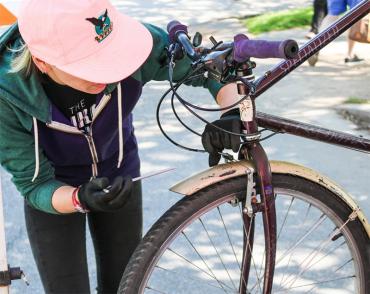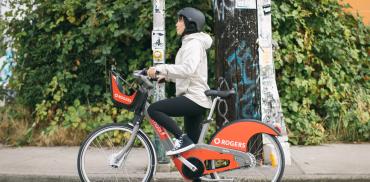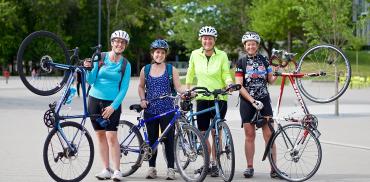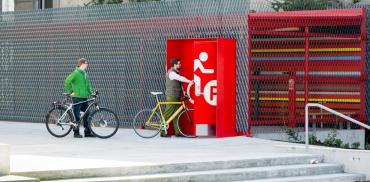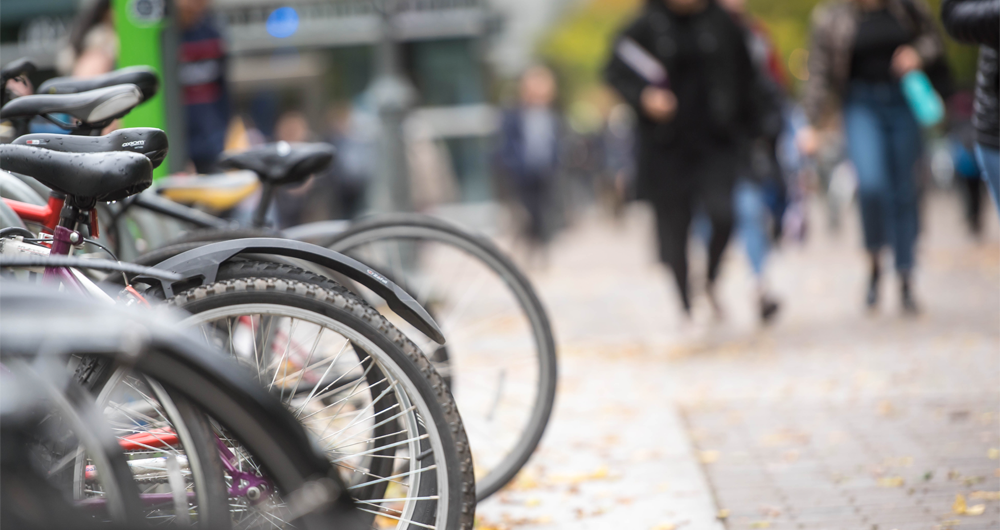
Getting Started
Cycling Routes and Commuting to Campus
Take a look at a UBC bike route map and select a route that looks like it’ll work for you. Explore different routes to and from UBC. There are plenty of different ones to choose from and some will suit your needs better than others. Into trail riding? Check out the neighbouring Pacific Spirit Park and make forest bathing part of your commute.
Ride part of the way to campus; you can start or finish your trip by bus. Put your bike on one of the racks attached to the front of the buses and grab a seat! This is handy if you have bike trouble during your ride. Riding in traffic? Ride with the direction of the traffic, use hand signals when turning or slowing down, and wear visible/reflective clothing. If you’d like to improve your skills and safety, try taking a Streetwise course offered by HUB Cycling.
Find maps from Metro Vancouver municipalities
Basic Bike Gear and Clothing
Helmets, bells and lights are mandatory in BC. Replace your helmet every few years (the materials can break down over time, or become damaged by long-term ‘wear and tear’ or a fall).
Winter – a.k.a. ‘wet season’ (November to March): Vancouver is a wet (but rarely snowy) city, and if you are properly equipped the rain is no issue. Be sure to have a warm pair of gloves, a waterproof-breathable rain jacket and pants, fenders, and booties (covers for your shoes). Take an extra pair of clothes to change into.
See below for more cycling tips and on and off campus cycling resources.
